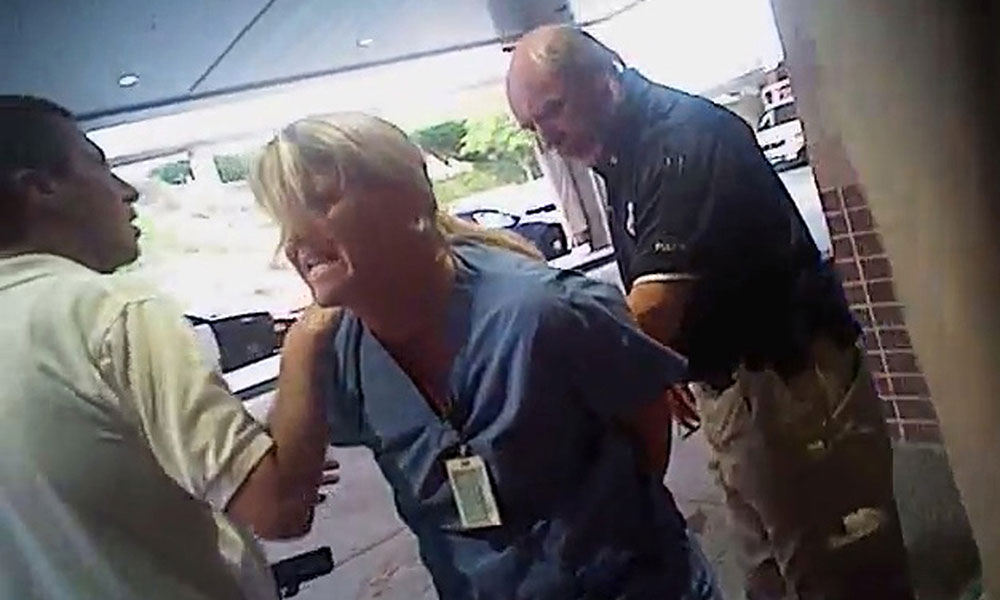
Behind the American Nurses Association’s Rapid Response to a Nurse’s Arrest
A viral video of a Utah nurse in handcuffs gave ANA an opportunity to spread the word about workplace violence and relationships with law enforcement.
In the past week, Alex Wubbels has become an unlikely household name, thanks to a video of her being arrested while on the job as a nurse at the University of Utah Hospital. On July 26, a Salt Lake City police detective demanded she provide a blood sample of an unconscious patient who had been admitted. Wubbels refused, citing hospital policy. She was arrested anyway, and later released without charges.
For the American Nurses Association, the incident was an opportunity for a teaching moment not only for the public about how nurses ought to be treated on the job but also for nurses themselves about how to engage with law enforcement.
ANA executive director Dr. Debbie Hatmaker, who calls Wubbels’ arrest “outrageous,” said her staff immediately worked on a speedy public response. “When we have established policy and established positions in certain areas, as we do on workplace violence, our staff is able to come together quickly and move without it moving through a hierarchy,” she said. “Our team huddled first thing after the video was released, and within a short period of time had identified the position statement we wanted to make.”
This incident has given us an opportunity to really strengthen our efforts.
In its statement, ANA called on the Salt Lake City Police Department to investigate the incident and make amends to Wubbels. The city’s mayor and police chief have since apologized to Wubbels, and two officers involved in the incident have been placed on administrative leave pending an investigation. (One of the two has also been fired from a part-time job with an ambulance service, based on remarks captured on the video.)
Hatmaker says ANA has cultivated an ability to respond quickly to incidents that put the profession in the spotlight, such as a nurse diagnosed with Ebola in 2014 or disparaging remarks about nurses made on The View in 2015. Wubbels’ arrest, however, was different in that it spoke to ethical issues that relate to the day-to-day work of ANA members.
“This incident has given us an opportunity to really strengthen our efforts and redouble our efforts to educate our members and all nurses, as well as the public, about our position on zero tolerance for incivility and violence in the workplace,” Hatmaker said. “Our foundational document, the Nurse’s Code of Ethics, does require the nurse to always be in that position of advocating for their patients. So we have to make sure that we’re giving them the tools and the education that needed to be able to be in that position.”
To that end, Hatmaker says ANA has seen an “uptick” in information requests about workplace protocols, which satisfies its goal to have hospitals set procedures in place to respond to similar conflicts. “[Wubbels] was doing everything right,” she said. “I think the most important thing for us to tell nurses at this point is to take a look at your hospital policy and make sure you’re comfortable that it does clarify exactly what you would do.”
Nurse Alex Wubbels, center, shown getting arrested after denying a police officer's request to draw blood from a patient. (Handout photo/Salt Lake City police department)






Comments